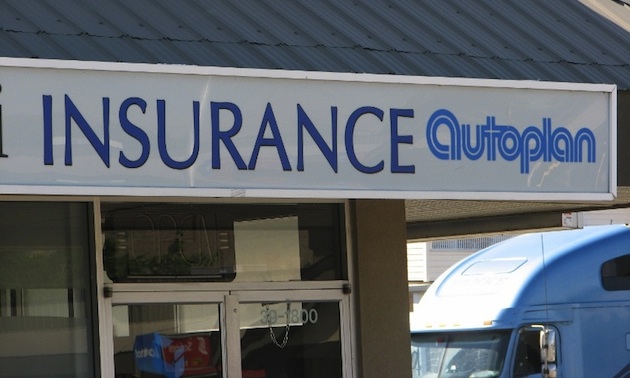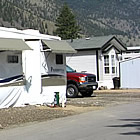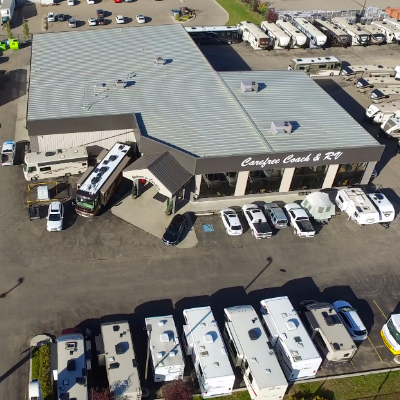Insurance for full-time RVers
Finding the right insurance can be a bit complicated

To obtain a vehicle license plate and insurance in British Columbia, RV owners must first use the services of ICBC to have their unit protected with the minimum amount of insurance. This is just the starting point for RVers who wish to live in their RV full time.
After speaking with several insurance agents, RV dealers and other RVers, I found there still seems to be a level of confusion as to whether insurance is available when living in your RV full-time and travelling. There is definitely a difference if the RV is parked and set up permanently and used as a seasonal residence or while vacationing versus traveling full time.
The basic ICBC coverage pays for injury-related medical and rehab expenses in the event of a crash and also provides $200,000 worth of third party liability if you are found to have been at fault for a crash or are responsible for causing injury or damage to someone else’s property. This can be increased if you feel it’s not enough.
It may be necessary and in fact is probable that additional insurance must be purchased through a private insurer.
Where it becomes important to RVers is the optional insurance for extended and additional third party liability, collision and comprehensive offered through private insurance. Shop around and ask lots of questions, because not all private insurers understand the full-time lifestyle.
Things to consider when shopping for insurance
Type of RV: Price for both basic ICBC coverage and private insurance will depend on the type of RV and its length. Having a trailer versus a motorhome will make a big difference as to cost.
Contents: The basic content coverage probably doesn’t cover the value of individual belongings such as clothing, small appliances, computers, cell phones and other personal items. By paying an extra premium the content value can be increased.
Replacement coverage: Typically an RV under 10 years old can be insured for guaranteed replacement. If your RV cannot be repaired it may be replaced by a new one. If it’s over 10 years old it may be possible to buy replacement insurance, but it will be replaced at its current value and not by a new unit.
Be honest
Is it better to be honest and travel down the road knowing that in the event of an accident, theft or emergency you are insured—or should you ask forgiveness after the fact? It’s a personal question no one else can answer for you, but there are private insurance companies who know about and will insure you while traveling full time. So why take a chance?
In researching this article I visited four different agencies and received different responses from each one. Know what you need and if you don’t receive the information you want from the first agency, carry on to the next until you are satisfied that you have the insurance coverage you desire.
Don’t despair. It’s definitely possible to have adequate insurance for your RV and its contents while living in your RV full-time. However, Darren Grams from Enterprise RV in Kelowna said, “People should be just as concerned about being properly licensed to operate their RV as having adequate insurance.”








